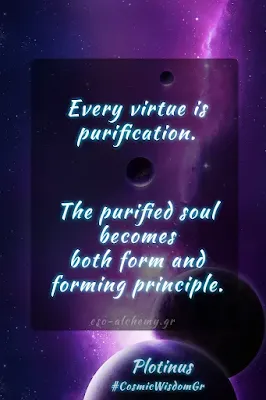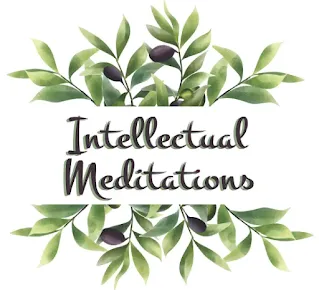¶8 • Pilcrow to Eternity
Plato's Episteme • the Tetraktys of Principles • Soul's Methexis
Epistemology seeks to understand one or another kind of cognitive success (or, correspondingly, cognitive failure).
Plato’s epistemology was an attempt to understand what it was to know, and how knowledge (unlike mere true opinion) is good for the knower. In the context of his philosophy, "episteme" refers to true knowledge or understanding that is based on reason and intellect rather than mere opinion or perception.
Locke’s epistemology was an attempt to understand the operations of human understanding, Kant’s epistemology was an attempt to understand the conditions of the possibility of human understanding, and Russell’s epistemology was an attempt to understand how modern science could be justified by appeal to sensory experience.
"Episteme" involves a deep, intellectual comprehension of the Forms and their interrelations. The pursuit of "episteme" is fundamental, emphasizing the importance of reason, dialectic, and the study of the Forms in attaining genuine understanding and wisdom.
Platonic Epistêmê :
- requires a reasoning out of the cause or explanation (aitias logismos, Meno 98a)
- entails the ability to give a definition, or verbal account (Phaedo 76b, Rep. 534b, etc.)
- is extremely rare (esp. Republic V: only philosophers have it)
- cannot be transmitted by testimony (Theaetetus 201c, Meno passim, Rep. 518b-c)
- is more than well-grounded true belief (Meno 85c-d)
- can only be had of things that are themselves stable (Philebus 59a-b)
- is of Forms by contrast with perceptibles (Republic V-VII, Timaeus, Philebus)
Notes of Jessica Moss [pdf]
For Plato, true knowledge is contrasted with "doxa," which refers to mere opinion or belief based on sensory perception. True knowledge is not derived from the material world but is rather a recollection or remembering of the eternal truths apprehended by the intellect.
Mr. Stavros Papamarinopoulos, a contemporary philosopher and one of the Hellenic masterminds we 'have' in our present-time, mentioned the Phaedro 277.b.5 & 277.c.3 passages of Plato's dialogue (bookshelf link) when he referred to the 4 principles of Plato's Episteme. [youTube video]
[277c]
must find out the class of speech adapted to each nature, and must
arrange and adorn his discourse accordingly, offering to the complex
soul elaborate and harmonious discourses, and simple talks to the simple
soul. Until he has attained to all this, he will not be able to speak
by the method of art, so far as speech can be controlled by method,
either for purposes of instruction or of persuasion. This has been
taught by our whole preceding discussion.
Plato distinguished between different levels of knowledge, placing "episteme" at the highest level.
In Plato's "Republic," for example, the allegory of the divided line illustrates the hierarchy of knowledge. At the top of the divided line is the "episteme," representing the realm of the highest, unchanging Forms or Ideas. These Forms, according to Plato, are the eternal and unchanging realities that underlie the transient and changing world of appearances.
Platonic epistemology emphasizes the importance of understanding the forms and the world of timeless essences, and the 4 principles of examination, division, taxonomy, and numbering are methods employed in the pursuit of knowledge and understanding, thus play a crucial role for the intellectual ascent.
ত The 4 principles of Platonic Episteme :
❈ Examination (Εξέτασις) : refers to the process of examining & scrutinizing ideas, concepts, or phenomena to gain a deeper understanding of their nature and truth. In Platonic epistemology, examination is an essential step in the process of recalling and understanding the forms, which are the ultimate realities and sources of knowledge.
❈ Division (Διαίρεσης): Division is the process of breaking down complex ideas or concepts into their simpler parts to better understand their structure and relationships. This principle is closely related to the first principle of examination, as it helps to reveal the underlying unity and multiplicity of ideas.
❈ Taxonomy (Τάξις): Taxonomy, or the classification of things, is the arrangement of ideas or concepts in a hierarchical order based on their properties and relationships. This principle is essential for organizing knowledge and understanding the structure of the universe, as it allows us to see the interconnectedness of different ideas and concepts.
꘏ The Soul's Methexis ꘏
Building on the symbolic and metaphysical connections between Platonic epistemology and the Pythagorean tetraktys, the focus shifts to our core, which is the Soul, and its connection to Episteme.
- the bearer of moral properties
- the source of life and the mind
- it is both a mover and a thinker
- it is immortal and pre-exists before birth
- has direct knowledge of the Forms, including the Form of the Good and perfect knowledge of Ideas.
 In Plato's theory of knowledge, the soul is intimately
connected to the acquisition and recollection of knowledge, and the
process of learning is the rediscovery of the eternal truths already
contained within the soul.
In Plato's theory of knowledge, the soul is intimately
connected to the acquisition and recollection of knowledge, and the
process of learning is the rediscovery of the eternal truths already
contained within the soul.
Plato's epistemology involves several key methods or approaches aimed at connecting us with the Forms and attaining true knowledge (episteme). These methods, by extension, offer a deeper understanding of reality and the world around us.
The following list is a mere "mention" of Plato's methods,
hoping to offer a holistic view of Platonic Methexis.
❈ Dialectic (Dialektike)
Dialectic is a method of philosophical inquiry and discussion. It involves the exchange of ideas and arguments between individuals to arrive at a deeper understanding of the truth.
The dialectical process is intended to uncover and clarify fundamental concepts and principles. Through dialogue, individuals engage in a cooperative search for knowledge, gradually refining their understanding.
❈ Socratic Method
Named after Plato's teacher, Socrates, this method involves posing a series of questions to an interlocutor. The interlocutor is encouraged to think critically and arrive at conclusions through their own reasoning.
The Socratic method aims to stimulate critical thinking and self-discovery. By questioning assumptions and exploring implications, individuals move towards a more profound understanding of concepts.
❈ Anamnesis (Recollection)
Plato proposes the idea that true knowledge is innate within the soul and can be recollected through a process called anamnesis. According to this notion, the soul, before entering the material world, has knowledge of eternal truths.
Anamnesis is a method for accessing the pre-existing knowledge within the soul. Through philosophical inquiry and reflection, individuals can recollect and rediscover these eternal truths.
❈ Allegory
Plato often employs allegorical storytelling to convey philosophical ideas. Allegories are narratives with symbolic meanings that convey deeper truths.
Allegories serve to communicate complex philosophical concepts in a more accessible and engaging manner. Plato's Allegory of the Cave, for example, illustrates the journey from ignorance to enlightenment.
❈ Division (Dichotomy)
Plato frequently uses the method of division to analyze and classify concepts. This involves breaking down complex ideas into simpler components to better understand their nature.
Division aids in the systematic exploration of concepts, helping to discern distinctions and relationships. It contributes to a more precise understanding of abstract ideas.
❈ Ideal Forms (Theory of Forms)
Plato's theory of Forms posits that the material world is an imperfect reflection of a higher realm of eternal, unchanging Forms. The method involves contemplating these ideal Forms to gain true knowledge.
By focusing on the transcendent Forms, individuals can move beyond the illusions of the material world and access the realm of unchanging and perfect truths.
❈ Mathematical Reasoning
Plato places significant emphasis on mathematical reasoning as a path to understanding the nature of reality. Mathematics, particularly geometry, is viewed as a means to access universal and eternal truths.
Mathematical reasoning provides a disciplined and precise method for exploring abstract concepts. Plato believes that the study of mathematics trains the mind to grasp the nature of the Forms.
꘏
These methods collectively contribute to Plato's epistemological framework, guiding us in the pursuit of true knowledge and the apprehension of eternal truths. The dialogical nature of Plato's works often involves a dynamic interplay of these methods as characters engage in philosophical discussions and inquiries.
Continue your journey along the edges of concepts and the vertices of contexts, where the nuances of thought paint the canvas of understanding.
Until our intellectual paths converge once more, may your contemplations be as vivid as brushstrokes on the canvas of wisdom.
DISCLAIMER : ¶8 philosophical constellations are mindfully qreated, in hopes to pollinate intellectual smiles and spark your Spirit as you noetically journey on the conceptual edges and contemplate on the contextual vertices.
This is my second article with this intent. I've already set the next-level of qreation but i need to crystalize the quality of the current ground-floor.
~ Kindly share your feedback !
¶8 Articles :
Synthesis • "Hellenic Ontology of Psyche" .
Available readings on Bookshelf :
A meta-ontological project with which i aim to enable & nurture
Spiritual cultivation; to enhance our Minds with Wisdom of Cosmos &
profound Truths of Reality
❈ Visit the Project's page for an in depth understanding of the chosen philosophers' contributions to Spiritual Cultivation & ascent.
❈ Visit the Articles' Index for the posts of all philosophers, and their respective X • thread links [ ত ]
❈ If you enjoy aesthetic/vintage quotes, visit the project's Pin board, or have a look at the EsoAlchemy one.
Intellectual Meditations
delve into the Essence of Universal Truths,
expand your mental horizons towards infinity,
and experience Cosmic Forms & Ideas.
& cultivate your Spirit via the path of Intellect.
Meditate on and Contemplate with,
concepts & theories, symbols & archetypes.
An intro guide is available here.







.png)
